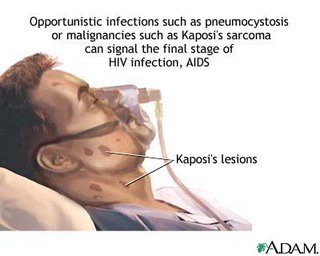 (HealthDay News) -- An investigation reveals that a bacterial outbreak at a Johns Hopkins outpatient clinic posed a greater potential risk to staff and patients than previously thought.
(HealthDay News) -- An investigation reveals that a bacterial outbreak at a Johns Hopkins outpatient clinic posed a greater potential risk to staff and patients than previously thought.In 2004, two health care workers at an outpatient clinic for people with HIV at the Johns Hopkins Hospital became infected with a more aggressive form of methicillin-resistant Staphylococcus aureus (MRSA).
The workers had community-acquired MRSA, which can be more dangerous to patients because it is often misdiagnosed as hospital-acquired MRSA. Community-acquired MRSA can be treated by some antibiotics, while hospital-acquired MRSA tends to be resistant to common antibiotics.
In response to this outbreak, infection control experts at Johns Hopkins conducted and investigation, the results of which are published Sept. 18 in the online edition of Infection Control and Hospital Epidemiology.
The Hopkins team swabbed 36 surfaces in the clinic and tested all other clinic staff for the presence of the infection.
While no other workers were found to be infected with community-acquired MRSA, seven surfaces tested positive for contamination, including patient exam table surfaces, pulse oximeters, countertops, computer keyboards and patient chairs.
After two weeks of intense efforts to prevent the spread of infection, another round of testing showed no positive cultures of community-acquired MRSA, so the outbreak was deemed to be over.
"Community-acquired MRSA is an increasing problem in inpatient and outpatient settings, as exposure can occur in the workplace," senior hospital epidemiologist Dr. Trish Perl, associate professor of medicine and pathology at the Johns Hopkins University School of Medicine, said in a prepared statement.
"Our experience shows that health care workers need to be aware of the risk, alert infection control staff immediately after an infection is suspected, and understand that tighter infection control procedures can guard against subsequent exposure," she said.
Symptoms of community-acquired MRSA include abscesses on the skin that must be drained to prevent foul-smelling skin infections, muscle swelling, or pneumonia and septic shock.
More information
The U.S. Centers for Disease Control and Prevention have more about community-acquired MRSA.

No comments:
Post a Comment